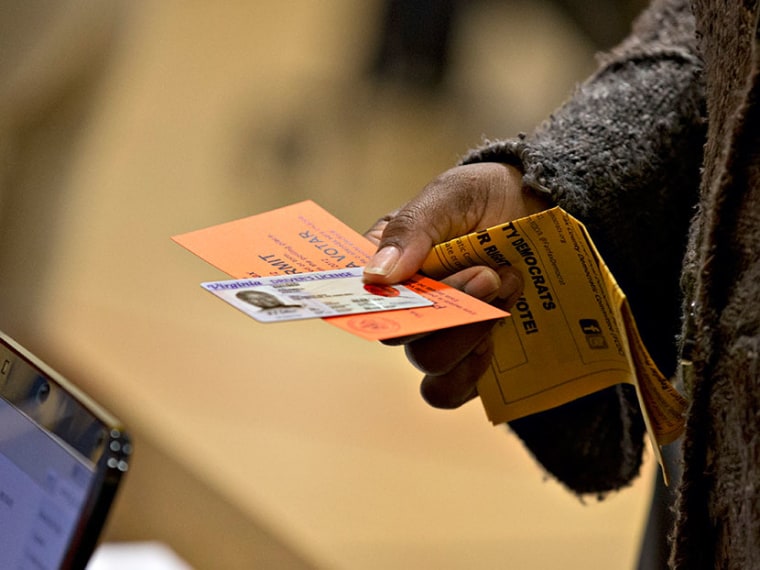It's sometimes helpful when an independent analysis, released by an objective source,
confirms what should already be obvious.
States that toughened their voter identification laws saw steeper drops in election turnout than those that did not, with disproportionate falloffs among black and younger voters, a nonpartisan congressional study released Wednesday concluded. [...] The report by the Government Accountability Office, Congress' investigative agency, was released less than a month from elections that will determine which party controls Congress.
As part of the research, GAO scholars "compared election turnout in Kansas and Tennessee -- which tightened voter ID requirements between the 2008 and 2012 elections -- to voting in four states that didn't change their identification requirements."
Not surprisingly, the research found that voter turnout dropped in the states that imposed tighter restrictions. What's more, as Jay Bookman
noted, the "decline was among 'eligible and registered voters' -- these weren't people trying to cheat."
The turnout drop was more likely to affect voters 23 and younger, new voters, and African Americans.
And given that these voting restrictions were imposed by Republican state policymakers, it's not unreasonable to wonder whether the results are a feature, not a bug.
Making matters slightly worse,
the GAO report uncovered no evidence of a voter-fraud problem, which at least ostensibly is the point of imposing these voting hurdles in the first place.
What we're left with is an indefensible set of circumstances. Voter-ID laws are
wreaking havoc on elections, especially in states
like Wisconsin, pushed by far-right policymakers who end up discriminating against voters in order to solve a problem that doesn't exist.
And yet, the broader war on voting continues unabated. Zachary Roth and David Taintor
reported overnight on the latest out of North Carolina.
The entirety of North Carolina's sweeping voting law, seen by many as the strictest in the country, can go into effect for the impending midterm elections, the Supreme Court ordered Wednesday. The Supreme Court's move clears the way for the elimination of same-day voter registration and bans the counting of votes cast in the wrong precincts. An appeals court put a hold on those two provisions last week. [...] The court did not explain its decision in the brief order it issued, and it wasn't clear how many justices made up the majority. Justices Sotomayor and Ginsburg dissented.
The setback for voting-rights advocates comes on the heels of a related setback
in Wisconsin, which followed yet another setback
in Ohio.
